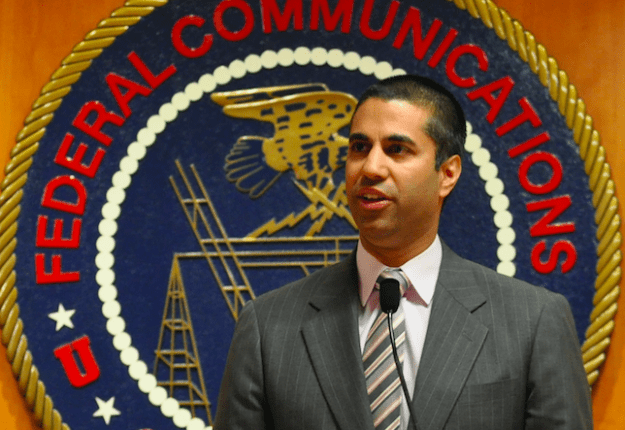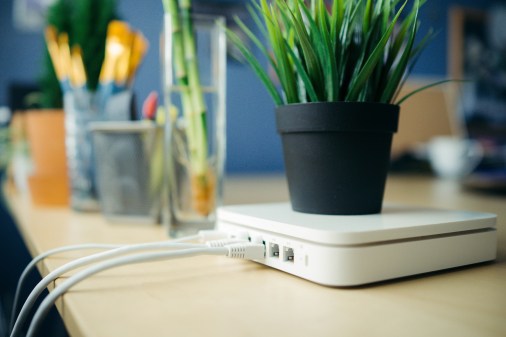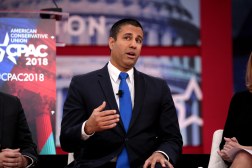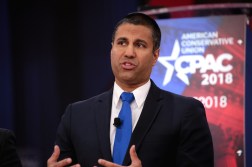Education advocacy groups ask FCC to reverse Lifeline decision

Four education advocacy organizations have jointly filed a formal request to the Federal Communications Commission asking the agency to reconsider a decision last month to prevent nine broadband companies from participating in its Lifeline program.
The nine companies were approved in January as Lifeline Broadband Providers (LBP) under a 2016 program modernization designed to furnish low-income households with a monthly credit of $9.25 for home internet service. But Republican FCC Chairman Ajit Pai on Feb. 3 announced a rollback of “midnight regulations” on Lifeline pushed through by his predecessor, Democrat Tom Wheeler, just before Pai assumed his post in January.
In a March 15 filing, the education advocacy groups argued that the LBP designations were needed to help reduce the “homework gap” caused a lack of affordable access to internet services among poor families.
“Designating these providers as LBPs is in the public interest and low-income households should be allowed to benefit from their services as quickly as possible,” the Consortium for School Networking, the State Educational Technology Directors Association, the Alliance for Excellent Education and Common Sense Kids Action said in a March 15 filing with the FCC.
Absent the participation of the nine companies, “many low-income students and their families will continue to lack the broadband access they need to learn and succeed … designating these providers as LBPs is in the public interest and low income households should be allowed to benefit from their services as quickly as possible,” the groups contended.
The filing pointed out that in a 2015 study the Pew Research Center found that approximately 5 million households with school-age children do not have high-speed internet service to utilize for learning when they are at home. While Pew reported that 83 percent of households with school age children have internet access at home, the number fell to just 60 percent for families with incomes under $25,000. The numbers declined even more for minority families with incomes below $25,000 with African-American families at 54 percent and Hispanic families at 55 percent, according to Pew.
The “homework gap” will become even more pronounced if policy improvements, such as the Lifeline modernization, are not fully implemented, the four organizations told the FCC.
The groups noted that the FCC’s Commission’s Enforcement Bureau entered into a consent decree with T-Mobile under which the telecommunications company would spend $5 million dollars to help low-income school districts overcome the homework gap. While T-Mobile agreed to implement the program this spring, “these types of single company efforts — whether independently started or through a similar consent decree — are not sufficient to address the homework gap at scale,” the groups declared in the filing.
The LBP designations “will promote competition by enabling additional providers to serve low-income households, without increasing the risk of waste, fraud and abuse. The new Lifeline structures … offer a tool for making significant national progress toward more universal home broadband access,” according to the filing.
“The commission should move forward with enabling a robust market for low-cost broadband offerings that will enable students the opportunity to learn and succeed at school and at home,” the groups concluded.
Pai, who became chairman of the FCC after President Donald Trump took office on Jan. 20, has said that reducing the digital divide is be one of his top priorities. But in a statement he was critical of the way the LBP designations were implemented at the “last minute … without the support of the majority of the commissioners at the time they were taken and should not bind us going forward.” His decision to revoke the LBP designations was intended to provide the FCC “with additional time to consider measures that might be necessary to prevent further waste, fraud and abuse in the Lifeline program,” according to the statement.
Pai’s action also generated a backlash from a coalition of civil rights and digital advocacy groups, including the NAACP and the AFL-CIO, as well as internet rights groups such as Free Press and Public Knowledge. In a recent letter to Pai and the two sitting commissioners, the coalition state that Lifeline is “the only federal program poised to bring broadband to poor families across the U.S. so that they can connect to jobs, complete their homework and communicate with healthcare providers and emergency services.”




